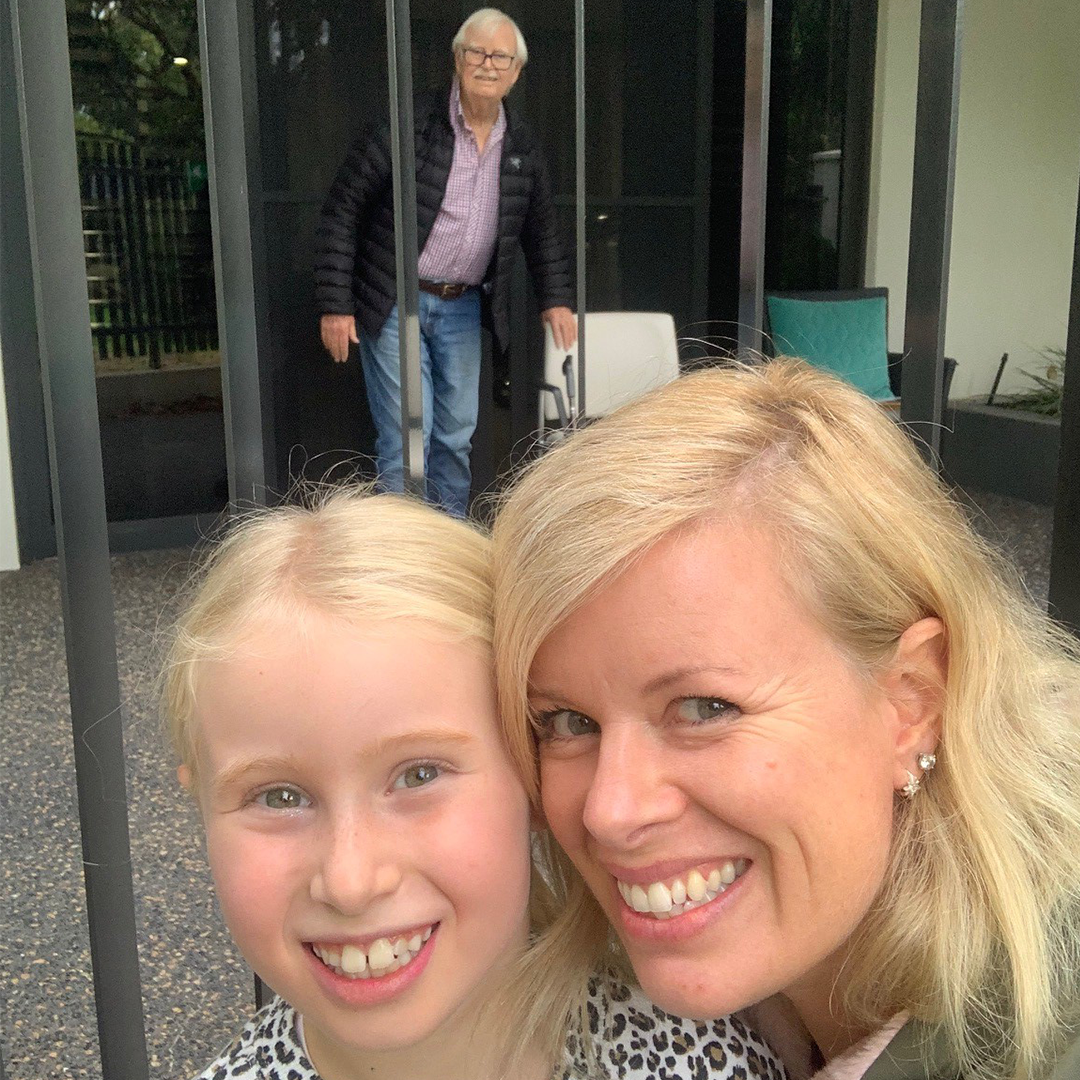How life changed through my father’s MSA diagnosis
As Fleur Salisbury discusses how life changed leading up to, and following her father’s Multiple System Atrophy (MSA) diagnosis, she apologises for her frustration. But she is not alone.
The reality is that it’s difficult to navigate a disease so few people know about, within a health and aged care system that has limited exposure to the specific symptoms and nuances that MSA brings.
Fleur, who is a full-time working mum, supports and advocates on behalf of her Dad, Edgar Ritchie. She has shared their story as part of MSA Awareness Month to improve understanding of the condition and the need for better services.
 MSA is a progressive neurodegenerative disorder characterised by a combination of symptoms that affect both the autonomic nervous system (the part of the nervous system that controls involuntary action such as blood pressure or digestion) and movement.
MSA is a progressive neurodegenerative disorder characterised by a combination of symptoms that affect both the autonomic nervous system (the part of the nervous system that controls involuntary action such as blood pressure or digestion) and movement.
Like it does for so many, Edgar’s diagnosis took years, starting when he was referred to a hospital memory clinic after gradual and sporadic cognitive decline pointed to early onset dementia.
“It really started off with the physio at the hospital who Dad was seeing because he fell off a tram and had to have back surgery. He noticed some cognitive decline with Dad and referred him to the movement disorder clinic,” Fleur said.
“He passed through many hands and did quite a few tests but eventually, they trialled him for Parkinsons medication and said if that had no effect, it could lead to another reason. Then last year they confirmed their diagnosis of MSA.”
Fleur had never heard of the disease.
“The thing with MSA is that it’s cold comfort to have a diagnosis – we had a name, but it’s felt like we’ve been navigating by the stars a bit. There’s no roadmap and you just have to manage symptoms as they arise.”
It was by chance that a friend knew that Fight Parkinson’s provided information and support for families affected by Atypical Parkinson’s, including MSA. So she rang and spoke to a member of the health team, who she says has been the “sole source of knowledge for our family.
There is no doubt it has been a rough stretch for Edgar, Fleur and their family and friends.
“We lost mum 18 months ago and I am very grateful that Dad is in a home and well looked after because after Mum passed away, it was a terribly worrying time. He was grieving and depressed, with diabetes and dementia.”
What is difficult for those around him is that Edgar does not understand that he has MSA and that he will not be able to do things he once could.
“Dad is very black and white. He says, ‘when I came in here, I could walk and now I can't. So what do I do to improve the situation and get back to the way it was?’
“He’s gone backwards, he doesn’t understand why and he can take it out on people.”

In addition to cognitive impairment, Edgar’s symptoms have included dribbling (which disappeared after a couple of years), shuffling, a resting tremor, loose bowels, constipation and the ‘Parkinson’s mask’, which people can mistake for someone being surly.
It has also affected his balance and he can’t lift his legs, making it hard to get in and out of cars.
“A GP comes (to the home) regularly, so if Dad has an issue during the week, the nurse will put it on the list, but this relies on Dad telling the staff which will not always a good thing, as A, he’s very proud and B, he can forget.”
It is not the only thing Fleur has found difficult within a generic aged care system that does not differentiate symptoms common to MSA such as urinary tract infections, dribbling and hallucinations, from general experiences of the elderly.
“I am Dad’s health advocate and through Fight Parkinson’s’s advice and help, I’ve been quite clear about a holistic health plan for Dad, but to try to get the home to step outside its formula, I didn’t understand how hard that would be,” she said.”
“I now know with MSA that while body language can say no, internally the person can be thinking the opposite, so some sort of training around that would be very helpful.
“I think that Dad being able to spend time with somebody one-on-one with MSA knowledge, who understands and acknowledges his condition, who can go into the home and see him would be amazing.
“They could then communicate to the nursing team peer-to-peer, which I think would be more influential than when it comes from a family member.”

On the positive side, Fleur is now able to visit Edgar once a week with her daughter and their dog. They go out for a meal and savour the happy times outside the confines of a health system that can add to the stress and frustration of watching a loved one decline.
“Dad still has quality of life. He’s not a pool player, footy watcher or card player - he’s a glass of wine and a chat kind of guy, so he does that. As a family, we’ve adopted a philosophy of let him have a good time and live life how he wants to live it.”
Fight Parkinson's provides a national information and support service for families affected by MSA, including a free health phone service and online support group.
